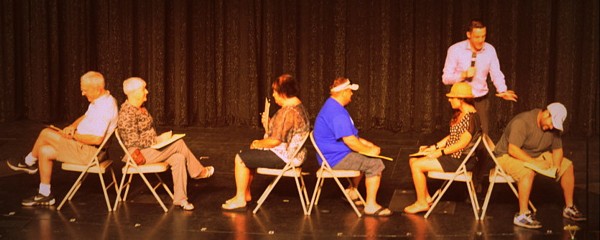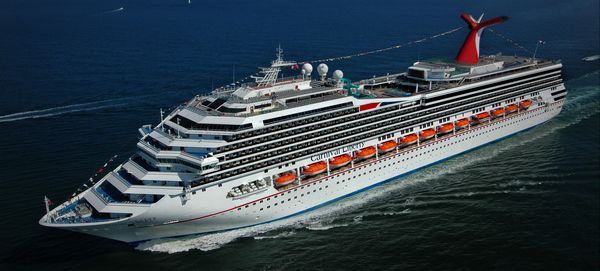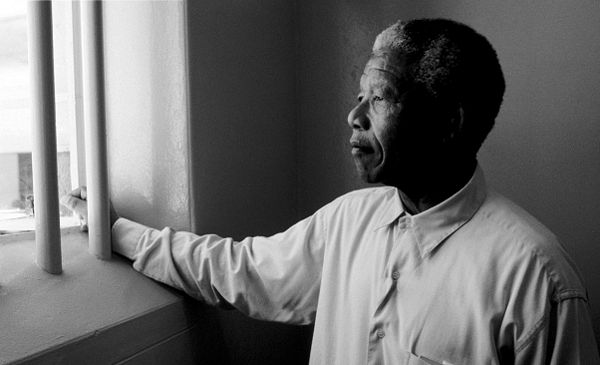
In the winter of 1964, Nelson Mandela arrived on Robben Island, off the coast from Bloubergstrand, Cape Town, South Africa. It was here in a prison that Mandela would spend eighteen of his twenty-seven years of prison sentence before he would be freed just prior to the fall of apartheid in South Africa.
The racist regime in South Africa cramped Nelson Mandela to a small cell. The ground was his bed. He had a bucket for a toilet and he was forced to do harsh labor in a quarry.
Contact with friends, family, and well-wishers was limited: Mandela was allowed one visitor a year for thirty minutes. He could write and receive one letter every six months.
Despite the trying times, Robben Island became the crucible which transformed him. Out of his intellect, charm, and decorous disobedience, Mandela in due course bent the most atrocious of prison officials to his will, took up to command his jailed comrades and developed into the master of his prison.
Eventually in the late 1980s, the South African President FW de Klerk and the African National Congress (ANC) initiated large-scale political reforms by relaxing apartheid laws and revoking the ban on black rights party. Nelson Mandela was freed on 11-Feb-1990. He emerged from the jail as a mature leader who would fight and win the great political battles that would create a new democratic South Africa.
Inspiring Quotations from Nelson Mandela from his Autobiography, “Long Walk to Freedom”
.jpg) Here are seven inspiring quotations from ‘Long Walk to Freedom’, Nelson Mandela‘s autobiography, which was recently made into a biopic with an inspiring performance from British actor, producer, and musician Idris Elba.
Here are seven inspiring quotations from ‘Long Walk to Freedom’, Nelson Mandela‘s autobiography, which was recently made into a biopic with an inspiring performance from British actor, producer, and musician Idris Elba.
- “In my country we go to prison first and then become President.”
- “No one truly knows a nation until one has been inside its jails. A nation should not be judged by how it treats its highest citizens but its lowest ones.”
- “Prison itself is a tremendous education in the need for patience and perseverance. It is above all a test of one’s commitment.”
- “I always knew that someday I would once again feel the grass under my feet and walk in the sunshine as a free man.”
- “It was during those long and lonely years that my hunger for the freedom of my own people became a hunger for the freedom of all people, white and black. I knew as well as I knew anything that the oppressor must be liberated just as surely as the oppressed. A man who takes away another man’s freedom is a prisoner of hatred, he is locked behind the bars of prejudice and narrow-mindedness. I am not truly free if I am taking away someone else’s freedom, just as surely as I am not free when my freedom is taken from me. The oppressed and the oppressor alike are robbed of their humanity.”
- “When I walked out of prison, that was my mission, to liberate the oppressed and the oppressor both. Some say that has now been achieved. But I know that that is not the case. The truth is that we are not yet free; we have merely achieved the freedom to be free, the right not to be oppressed. We have not taken the final step of our journey, but the first step on a longer and even more difficult road. For to be free is not merely to cast off one’s chains, but to live in a way that respects and enhances the freedom of others. The true test of our devotion to freedom is just beginning.”
- “I have walked that long road to freedom. I have tried not to falter; I have made missteps along the way. But I have discovered the secret that after climbing a great hill, one only finds that there are many more hills to climb.”
Recommended Reading
- ‘Long Walk to Freedom’, Nelson Mandela‘s autobiography.
- ‘Mandela: The Authorized Portrait’ by Mac Maharaj and Ahmad Kathrada (Editors)
- ‘Mandela’s Way: Lessons on Life, Love, and Courage’ by Richard Stengel
- ‘Conversations with Myself’ by Nelson Mandela
- ‘Gandhi An Autobiography: The Story of My Experiments With Truth’ by Mohandas Karamchand Gandhi
- ‘The Last Trek-A New Beginning: The Autobiography’ by F. W. De Klerk

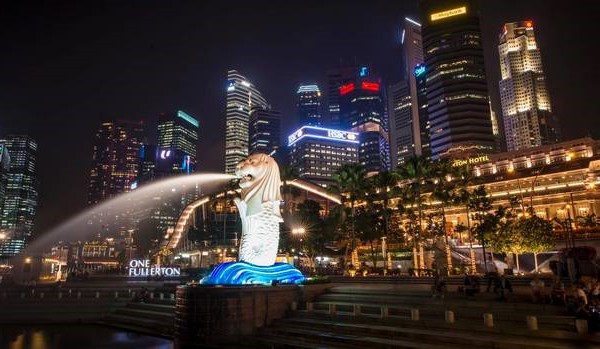
 Capital:
Capital:  Down the River: If you always wondered what lies beneath the waters of the Mississippi, you need look no further than in Asia’s first river-themed wildlife park. At
Down the River: If you always wondered what lies beneath the waters of the Mississippi, you need look no further than in Asia’s first river-themed wildlife park. At  Animal Magic: Known as one of the most spectacular zoos in the world, spread out over 26 hectares of intimate viewing platforms and sensitively constructed habitats, the
Animal Magic: Known as one of the most spectacular zoos in the world, spread out over 26 hectares of intimate viewing platforms and sensitively constructed habitats, the  Something Fishy: Singapore has some of the most superb seafood in the world, none more iconic than its chili crabs. Recognized as an unofficial national dish, this delightful dish involves crab slathered in a sweet-spicy sauce and served with fried mantou (buns) with which to mop up all of that extra sauce. No less well known are the
Something Fishy: Singapore has some of the most superb seafood in the world, none more iconic than its chili crabs. Recognized as an unofficial national dish, this delightful dish involves crab slathered in a sweet-spicy sauce and served with fried mantou (buns) with which to mop up all of that extra sauce. No less well known are the  Love’s in the Air: What better way to proclaim or re-affirm your love than at 165m above the ground in the world’s largest observation wheel, the
Love’s in the Air: What better way to proclaim or re-affirm your love than at 165m above the ground in the world’s largest observation wheel, the  Green Thumbs: If you are craving some open green space, this 101-hectare horticultural attraction with over 250,000 plants will give you just the breather you have been looking for. A mere five-minute walk from the city, the
Green Thumbs: If you are craving some open green space, this 101-hectare horticultural attraction with over 250,000 plants will give you just the breather you have been looking for. A mere five-minute walk from the city, the  Filmi Business: All you movie lovers, who are always dying to be part of the action, get to
Filmi Business: All you movie lovers, who are always dying to be part of the action, get to  Flying High: Experience the heart-thumping rush of skydiving without the risks at
Flying High: Experience the heart-thumping rush of skydiving without the risks at  Something for Everyone: There is not much that
Something for Everyone: There is not much that  Go Peranakan: Descendants of 17th century Chinese traders who migrated to the
Go Peranakan: Descendants of 17th century Chinese traders who migrated to the  Dining with the Stars:
Dining with the Stars: .jpg)
 Department stores offer towel collections that come with a variety of sizes, knitting style, cotton quality, and personalization details to fit the space, budget and personal preferences of buyers. Common household towels are made from cotton, rayon, bamboo, non-woven fibers or other organic materials. Most homes use three types of towels for each person in the household: bath towels, hand towels, and wash towels.
Department stores offer towel collections that come with a variety of sizes, knitting style, cotton quality, and personalization details to fit the space, budget and personal preferences of buyers. Common household towels are made from cotton, rayon, bamboo, non-woven fibers or other organic materials. Most homes use three types of towels for each person in the household: bath towels, hand towels, and wash towels..jpg)
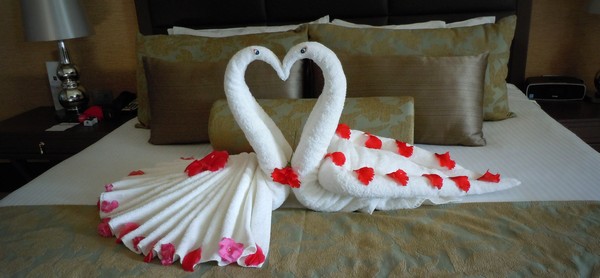
.jpg)
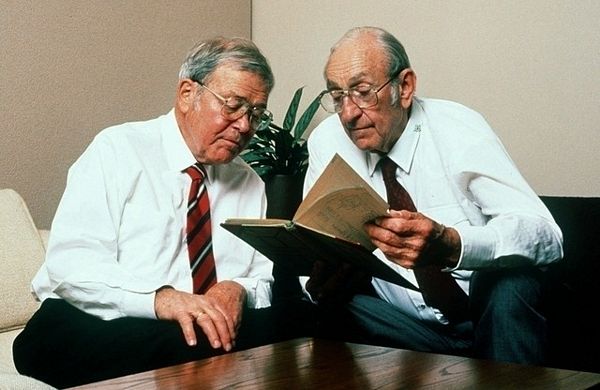
.jpg)
.jpg)
